Wärtsilä Assisting Solstad Offshore with Fleet Decarbonization
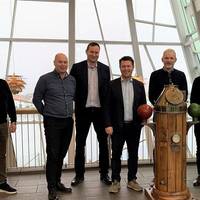
Norwegian offshore vessel owner Solstad Offshore has plans to reduce the carbon footprint of its 90 vessel fleet, and has turned to the technology company Wärtsilä for collaboration. "The aim is to achieve a 50 percent reduction in CO2 emissions by 2030. Partnership is seen as being key to finding the right solutions," Solstad said.The agreement aims to identify, evaluate, and implement solutions that will increase fuel efficiency and significantly reduce greenhouse gas (GHG) emissions from Solstad’s offshore vessels.
Interview: Hiroaki Sakashita, CEO, ClassNK

While the maritime industry faces a long ‘to do’ list for the coming three decades, Hiroaki Sakashita, CEO, ClassNK, sees decarbonization as the definitive trend that will most dramatically impact the design, construction and life-cycle operation of ships.“It is decarbonization.”Hiroaki Sakashita, CEO, ClassNK, is definitive when asked to discuss the biggest challenge facing shipowners today. “Decarbonization will change the structure of seaborne trade, ships’ specification and design, ships’ operation, and the economic mechanism of maritime transportation.
Virtual TAT: MAN 32/40R-DF Passes Type Approval Test, New Retrofit Package for Dual-Fuel Ops
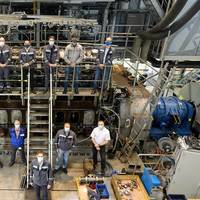
MAN Energy Solutions announced the successful conclusion of the Type Approval Test (TAT) for its dual-fuel retrofit kit for its MAN 32/40 engine type. The TAT took place at the company’s Augsburg, Germany works from September 15-18, 2020 with the participation of the three classification societies: DNV GL, American Bureau of Shipping, and Lloyd’s Register.The TAT confirmed the suitability of the retrofit kit for converting the company’s field-proven MAN 32/40 engine into a dual-fuel unit – a so-called MAN 32/40R-DF type – that can now run on fossil and renewable…
COATINGS: Chasing Better Prospects
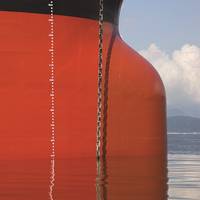
As the offshore industry recovers, choosing the right hull coating for those newly activated assets will be equally important.The global offshore support vessel (OSV) market is still recovering from a protracted slump, but thankfully momentum is now returning with predictions for significant activity for OSV’s ahead. As summarized in a report by market analysts Grand View Research, projections are for the OSV market to exceed USD 71 billion by 2022 on the back of a significant increase in projects reaching final investment decision (FID) status, and a rising demand for oil and gas worldwide.
Engie's Tractebel Unveils Hydrogen Platform
Tractebel Engineering GmbH and Tractebel Overdick GmbH are developing a concept for an offshore platform which makes it possible to produce hydrogen from offshore wind energy at an industrial scale using electrolysis.The companies, both part of French energy group Engie SA, announced that the concept consists of an up to 400-MW plant for the production of renewable hydrogen via electrolysis at an industrial scale.This kind of plant exceeds the output of previous technologies many times over. It could already be put into practice today, for example in the North Sea.The innovative offshore platform can enable a number of tasks to be solved simultaneously. The proportion of “green” hydrogen (H2) in the energy mix can be increased on a CO2-neutral basis.
Austal Starts Building Trimaran Ferry for Fred. Olsen
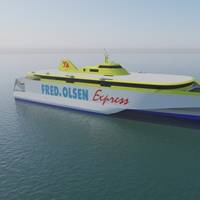
Shipbuilder Austal said it has commenced construction on the first of two 117-meter high-speed passenger trimaran ferries for Fred. Olsen.Developed in Henderson, Western Australia at Austal’s center of excellence in maritime design, the next-generation vessels will be used by Fred. Olsen Express in the Canary Islands, joining their sister ship, The Benchijigua Express.Capable of transferring over 1,100 passengers and 276 cars at speeds up to 38 knots these vessels will feature…
Greenhouse Gas Model for Shipping by 2050
DNV GL has published a report assessing the potential for greenhouse gas (GHG) emissions reduction from shipping towards 2050, based on a new computational model. The model can evaluate various scenarios for both individual ship segments and the industry as a whole. It can also evaluate the effectiveness of various solutions for reducing GHGs. “Despite the challenges facing our industry, we believe it is technically possible for shipping to achieve substantial GHG reductions, provided a viable strategy is developed and adopted from within the industry itself,” says Christos Chryssakis, Group Leader Energy Efficiency & Fuels at DNV GL.
Tech File: Vesconite Rudder Bushings
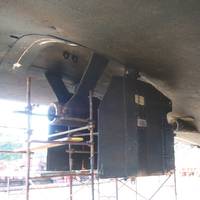
South American river tugboats need robust rudder bushings: some 20 tug boats on the Parana River, running through Brazil, Paraguay and Argentina, have been equipped with Vesconite rudder bushings. In the challenging waters of South American rivers, tugboat owners began ordering Vesconite’s proprietary thermoplastic rudder bushings starting in 2014. Convinced that the material – which is wear resistant, self-lubricating, environmentally-friendly, requires no grease, and easy to machine and fit – was more suitable than the bronze that has traditionally been used in the application…
KfW IPEX-Bank Boosts its Presence at SMM
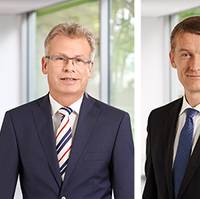
In an interview the departing head of the KfW IPEX-Bank Maritime Industries department, Dr. Carsten Wiebers offers insight into the facets of international ship finance as well as the challenges it currently faces. His successor Holger Apel casts a glance into the future. Carsten, KfW IPEX-Bank is once more stepping up its presence at SMM. Why? SMM is increasingly becoming a platform for topics beyond technology, such as environmental regulation or market intelligence. We meet with experts of the shipbuilding and manufacturing industry to discuss how to support their sales efforts.
IMCA Appoints Faure as President
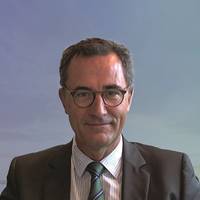
Bruno Faure, Group Senior Vice President Subsea Projects and Operations at Technip has taken over the role of President of the International Marine Contractors Association (IMCA), the association representing the interests of more than 1,000 offshore, marine and underwater engineering companies in more than 60 countries. In addition to becoming President of IMCA, having served as Vice President of IMCA since September 2014, he also becomes Chairman of the association’s Overall Management Committee (OMC).
Wärtsilä to Supply Gas Handling Systems for VLEC Newbuilds
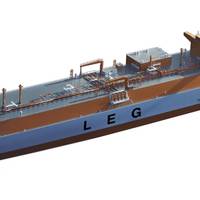
Six new 87,000 cubic meters capacity very large ethane carriers (VLECs), being built at the Samsung Heavy Industries yard in South Korea, will feature Wärtsilä gas handling systems. The contract, which includes an option for additional vessels within this series, was signed in September, and deliveries of the Wärtsilä solutions are expected to commence at the end of 2016 and complete in 2017. These vessels will reportedly be the largest ethane carriers ever built and represent a new generation of such vessels mainly transporting ethane as feed stock to the petrochemical industry.
The Martitime Security Focus Is Shifting
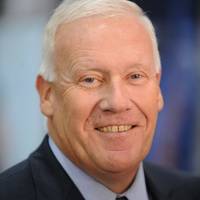
Former Vice-Admiral and Commander-in-chief of the German Navy Hans-Joachim Stricker, President of the German Maritime Institute (DMI), believes that in terms of security the industry is headed in the right direction. But challenges remain. Safety First: Shipping is no exception. Keeping people and property out of harm's way not only means complying with onboard technical safety regulations, training ship crews and providing rescue equipment. It also means addressing external threats from terrorism and piracy, which continue to be a major challenge for shipping.
Hawaii Establishes Incident Command for Molasses Spill
The Hawaii Department of Health has implemented an incident command system to further organize the response to the molasses spill in Honolulu Harbor, Monday. An incident command post has been established at the Clean Islands Council facility near Sand Island. The incident command is comprised of representatives from the Hawaii Department of Health, Department of Land and Natural Resources, Department of Transportation, Matson, Coast Guard, Environmental Protection Agency, National Oceanic and Atmospheric Administration and U.S. Fish and Wildlife Service. The incident command has drafted and approved an incident action plan which outlines key objectives of the response and provides clear direction to all participants.
Intelsat 27 Launch Unsuccessful
Intelsat S.A., the world's leading provider of satellite services, has announced that at 1:57 a.m. EST, the launch of the Intelsat 27 satellite failed approximately 40 seconds after liftoff. A Zenit 3SL launch vehicle was carrying the satellite built by Boeing. Intelsat 27 was to operate from 304.5º East, an orbital location currently occupied by Intelsat 805 and Galaxy 11. The satellite was designed to serve customers in North America, South America, the North Atlantic and Europe. Sea Launch will establish a Failure Review Oversight Board to determine the cause of the failure. Service to customers on Intelsat 805 and Galaxy 11 will not be interrupted as a result of today's event.
ABS Elects New Council
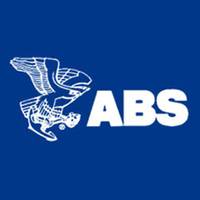
At the 150th Annual Meeting of the Members of ABS, three industry leaders were elected to the ABS Council. Following the Annual Meeting, the ABS Council met and elected industry leaders to both its Marine and Offshore Technical Committees. Individuals serving on the ABS Council and the Technical Committees help guide the class society in fulfilling its mission of promoting the security of life, property and the natural environment. “Classification represents the concept of self-regulation for the marine and offshore industry,” said ABS President and CEO Christopher J. Wiernicki.
Regulation of Ship Design and Construction
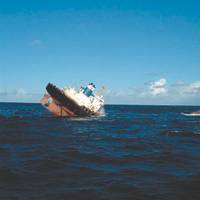
It is often said that humans learn more from their failures than from their successes. While the saying may be an exaggeration, there have certainly been a number of failures in the design and construction of ships that have resulted in improvements of future efforts. Some of those improvements have been forced on the marine industry by government regulation. More often, though, government regulation has been utilized to ensure that all players implement needful improvements that have been voluntarily adopted by forward-thinking companies.
MARAD Releases Report on E-Seals
The U.S. Maritime Administration (MARAD) released the voluminous two-part report evaluating electronic seals for use on cargo containers. The analysis was conducted on behalf of the Cargo Handling Cooperative Program and evaluated the operation of four selected radio frequency (RF) based e-seals and one non-RF e-seal. The goal was to develop a technical baseline that could help stakeholders select appropriate solutions to security, operational, and economic requirements. The e-seals tested were widely divergent and represented trade-offs in areas of frequency, communication protocol, reader infrastructure, and seal location. The report recognizes that e-seals alone will have only a limited impact on improving container security and future efforts should focus on the entire container.





